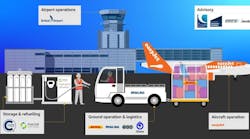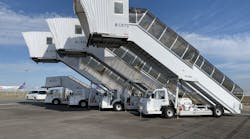Long-running efforts to curb the impact of commercial aviation on climate change face a crucial test starting this week when representatives from almost 200 countries debate whether to establish the first-ever global cap on carbon emissions from international flights.
Officials are gathering in Montreal for talks starting Tuesday aimed at tackling one of the major sources of carbon-dioxide emissions not covered by the Paris climate deal agreed in December 2015. The Paris deal excluded commercial flights because most of aviation’s CO2 emissions are produced outside national borders.
Excluding aviation left “a gaping hole” to meeting the Paris target on controlling global warming, said Lou Leonard, senior vice president for climate change at the World Wildlife Fund.
Because of the cross-border nature of international flights, issues such as CO2 limits are dealt with by the International Civil Aviation Organization (ICAO), the United Nations’ commercial flight regulator.
International aviation accounts for over 2 percent of global carbon emissions, Leonard said, making the industry equivalent to the seventh-biggest emitting country. ICAO puts the number slightly lower, saying the 2 percent figure represents all commercial flights, even as the organization seeks a global consensus to rein in growth.
The meeting, which will run through Oct. 7, will see representatives of ICAO’s 191 members convene to address topics including safety and plane noise. CO2 will top the agenda, after years in which airlines and national regulators battled over proposed cap-and-trade systems.
To read more of this story, click here.



